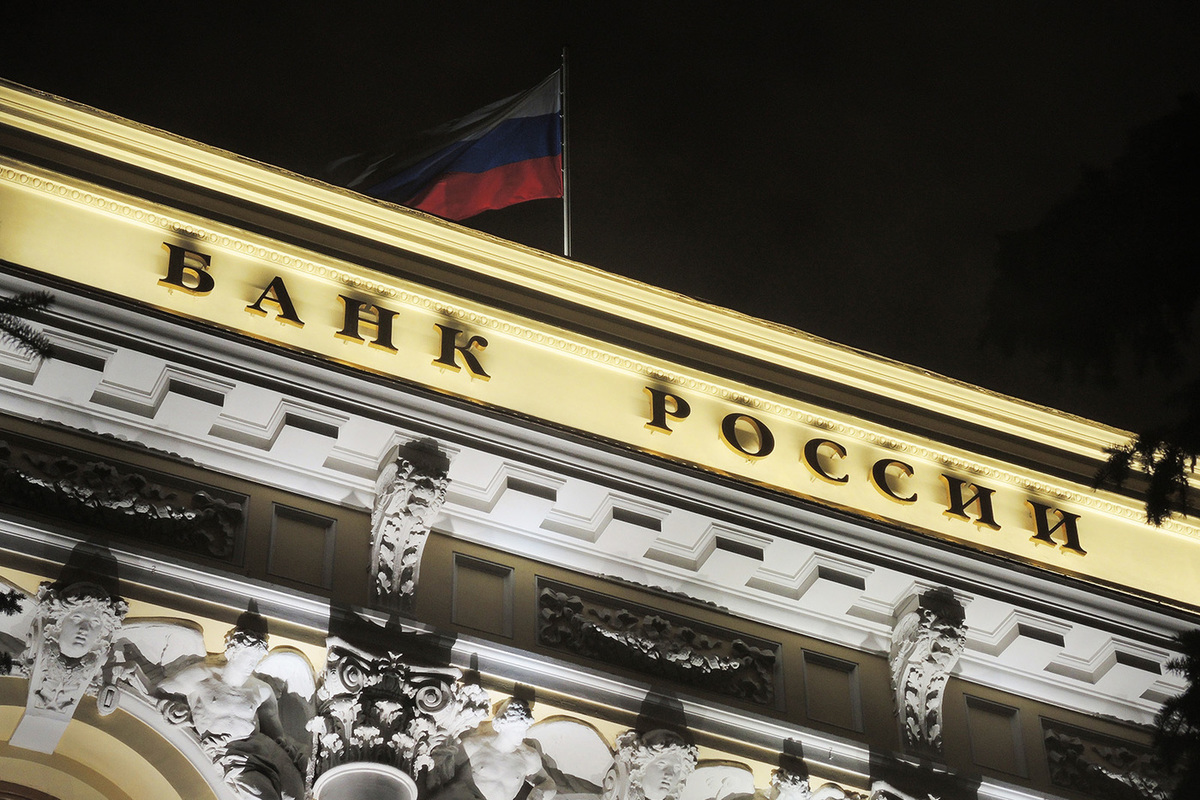The economist assessed the castling in the Central Bank: people change, decisions remain
[ad_1]

“Compared to the hierarchy in the Bank of Russia, the army is freemen”
The leadership of the Bank of Russia may change, but its work will live on. The current adviser and former first deputy chairman of the Central Bank, Ksenia Yudaeva, whom many economists call the “gray eminence” of the regulator, left the board of directors of the Central Bank. The State Duma Committee on the Financial Market recommended appointing Elizaveta Danilova, a young director of the Bank of Russia’s financial stability department, to fill the vacant position. It would seem that Yudaeva’s departure from the forefront of the Central Bank should mean a change in the ultra-liberal course of the country’s main financial department. However, experts emphasize that as long as Chairman Elvira Nabiullina professes a certain point of view, there cannot be any other one in principle.
The Financial Committee of the State Duma, which is headed by Anatoly Aksakov, approved new members of the board of directors of the Central Bank. The lower chamber will consider the relevant draft resolutions at a meeting on October 12. We are talking about the director of the financial stability department of the Central Bank, Elizaveta Danilova, the head of the main department of the Central Bank for the Central Federal District, Rustem Mardanov, and the head of the Volga-Vyatka main department of the Central Bank, Larisa Pavlova. Ksenia Yudaeva’s powers as a member of the board of directors of the Bank of Russia expired on October 10, 2023, but she remained an adviser to Nabiullina.
It is known that many financial analysts called Yudaeva a proponent of liberal approaches, for which the Central Bank was often criticized and is being criticized from another economic flank. But will the policy of the management of the Bank of Russia change after the change of persons on the board of directors?
To assess the prospects, you need to take a closer look at those new faces. Take, for example, 38-year-old Elizaveta Danilova, director of the financial stability department. Among financiers, her appointment caused particular bewilderment. After all, until now people from a position no lower than the deputy chairman of the Central Bank were elected to the board of directors. And suddenly such a sharp rise of Elizaveta Danilova…
Meanwhile, financial analyst, candidate of economic sciences Mikhail Belyaev noted that there is no hierarchical step between the director of the department and the deputy chairman. But a member of the board of directors is a completely different status, with different powers. A member of the board of directors participates in the development and adoption of key decisions of the Central Bank, the analyst explained. In his opinion, Danilova’s appointment could be both a sharp jump on the hierarchical ladder and a sharp career growth. The paradox, rather, is that in the structure of the Central Bank there are still many deputy chairmen who are not members of the board of directors.
Does this mean that the degree of trust in the head of the department is higher than in deputy chairmen occupying higher positions? Belyaev suggested that the Central Bank, like many other departments, is pursuing a policy of rejuvenating its leadership. “The Department of Financial Stability is one of the key ones in the Central Bank. The youngsters are rapidly climbing the career ladder. This happens,” says the expert.
Let us recall that previously the board of directors of the Central Bank included the chairman, his deputies and directors of the main departments that were most key to the work of the bank. However, it later turned out that the chairman had so many deputies that they no longer fit into the board of directors (15 people). The result was a paradox: a person could be deputy chairman, but at the same time not be a member of the board of directors. This is, to put it mildly, strange.
“On the one hand, I would like to breathe a sigh of relief after the news that Ksenia Yudaeva will not join the new board of directors of the Central Bank. She took an active part in raising the key rate and was the main director of this production. But there are still deputy chairmen on the board of directors, who are worth several Yudaevs. Consequently, the Central Bank rate will not change. The policy will remain the same, emphasizes Mikhail Belyaev. – As a person with twenty years of experience in the Central Bank, I will say that few people realize how strict the hierarchy is there. The army is a freeman compared to the hierarchy that exists in the Central Bank. If the chairman professes a certain point of view, but in principle there cannot be any other. There your thoughts will be X-rayed and if they find out that you hold a different point of view, then your career path to the top is closed.”
And, naturally, as long as Elvira Nabiullina is the head of the Bank of Russia, there can be no change in the regulator’s course.
“If you think that there might be some kind of controversy on the board of directors about what the rate will be, then you are mistaken. Knowing the general exchange rate, the discussion can only be about how much to increase this time – by 2 or 1.5%. And this is sad,” concludes MK’s interlocutor.
[ad_2]
Source link






